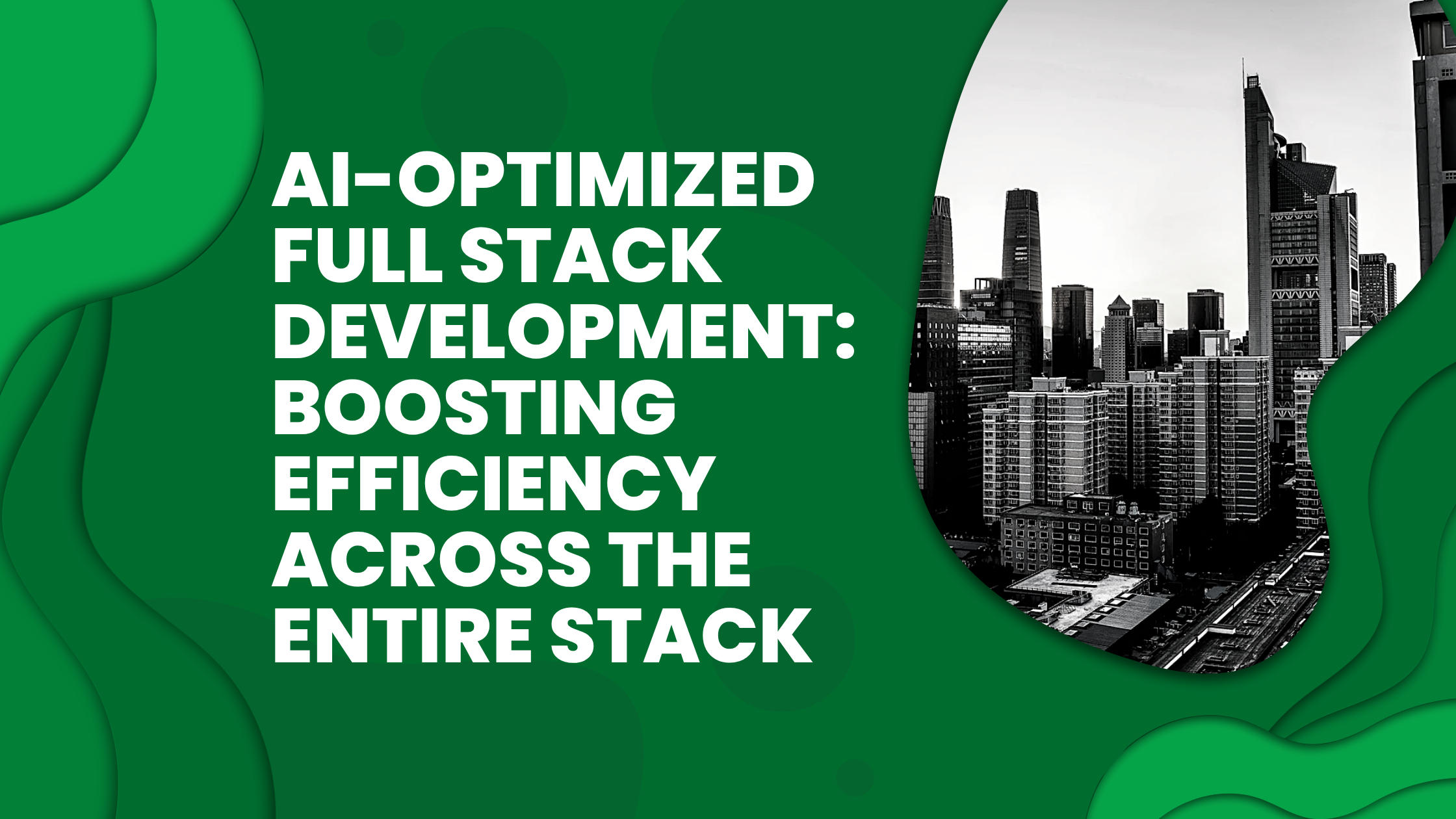AI-Optimized Full Stack Development: Boosting Efficiency Across the Entire Stack
In the ever-evolving landscape of software development, the integration of Artificial Intelligence (AI) into full stack development is not just a trend—it’s a transformative shift. This blog delves into how AI is revolutionizing full stack development, enhancing efficiency, and reshaping the roles of developers across the globe.
The Current State of Full Stack Development
Full stack development encompasses both front-end and back-end development, requiring a diverse skill set to manage the complete lifecycle of web applications. Traditionally, developers have relied on manual coding, debugging, and deployment processes, which can be time-consuming and prone to errors.
However, the advent of AI is streamlining these processes. AI-powered tools are now assisting developers in writing code, identifying bugs, and automating repetitive tasks, thereby accelerating development cycles and improving code quality.
AI’s Impact on Front-End Development
Front-end development focuses on the user interface and experience. AI is playing a pivotal role in enhancing these aspects by:
- Automated Design Suggestions: AI algorithms analyze user behavior and preferences to suggest design improvements, ensuring a more intuitive user experience.
- Code Generation: Tools like GitHub Copilot and Tabnine assist in generating front-end code snippets, reducing development time and minimizing errors.
- Accessibility Enhancements: AI helps identify and rectify accessibility issues, making applications more inclusive.
Transforming Back-End Development with AI
Back-end development involves server-side logic, databases, and application integration. AI is optimizing back-end processes through:
- Predictive Analytics: AI models analyze data patterns to forecast system behaviors, enabling proactive issue resolution.
- Database Optimization: AI assists in optimizing database queries and structures, enhancing performance and scalability.
- Security Enhancements: AI detects anomalies and potential security threats, bolstering application security.
AI in DevOps and Continuous Integration/Continuous Deployment (CI/CD)
DevOps practices aim to unify software development and operations. AI is enhancing DevOps by:
- Automated Testing: AI-driven testing tools identify bugs and performance issues early in the development cycle.
- Deployment Automation: AI streamlines deployment processes, reducing the risk of human error and ensuring consistent releases.
- Monitoring and Feedback: AI continuously monitors applications post-deployment, providing insights for ongoing improvements.
Real-World Applications and Case Studies
Several organizations are leveraging AI to optimize their full stack development processes:
- Goldman Sachs: The firm has deployed AI tools to streamline operations and enhance productivity, achieving up to 20% efficiency gains among software engineers.
- Meta: CEO Mark Zuckerberg highlighted that AI could soon perform tasks equivalent to those of mid-level engineers, significantly altering workforce structures.
- Figma: Introduced AI-powered tools like Figma Make, enabling designers to build functional apps and prototypes from descriptions or designs.
Challenges and Considerations
While AI offers numerous benefits, it’s essential to address potential challenges:
- Overreliance on AI: Developers must maintain their skills and not become overly dependent on AI tools.
- Data Privacy: Ensuring that AI systems handle data responsibly and comply with privacy regulations is crucial.
- Bias in AI Models: Developers need to be aware of and mitigate biases that may exist in AI algorithms.
The Future of Full Stack Development with AI
The integration of AI into full stack development is poised to continue growing. As AI tools become more sophisticated, developers will be able to focus more on creative and strategic aspects of development, leaving routine tasks to AI. This shift will likely lead to:
- Smaller, More Efficient Teams: With AI handling repetitive tasks, leaner teams can achieve more.
- Faster Development Cycles: Automation will accelerate the development process, allowing for quicker iterations and deployments.
- Enhanced User Experiences: AI’s ability to analyze user data will lead to more personalized and intuitive applications.
Conclusion
The fusion of AI and full stack development is not just enhancing efficiency—it’s redefining the development landscape. As AI continues to evolve, its role in development will become increasingly integral, offering unprecedented opportunities for innovation and growth.
For organizations seeking to stay ahead in this dynamic environment, partnering with a full stack software development company that embraces AI-driven methodologies can be a game-changer. Embracing AI in full stack development is no longer optional; it’s a strategic imperative for success in the digital age.

